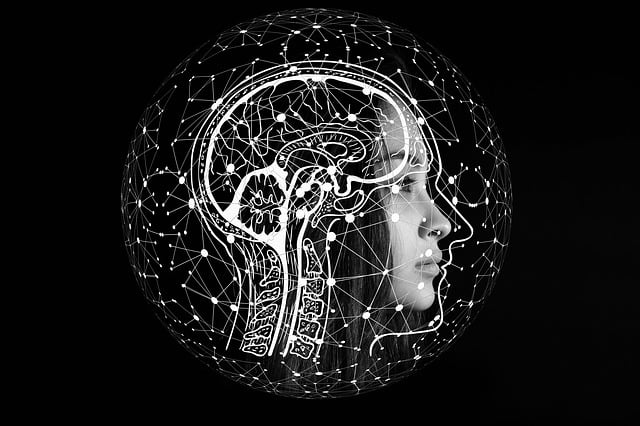-
Table of Contents
Revolutionizing Medicine: The Role of AI in Drug Discovery

Artificial intelligence and drug discovery are transforming the pharmaceutical industry, offering unprecedented opportunities to accelerate the development of life-saving treatments. For years, the process of discovering new drugs has been time-consuming, expensive, and fraught with uncertainty. However, with the integration of AI technologies, researchers can now analyze vast datasets, predict molecular interactions, and identify potential drug candidates with remarkable speed and accuracy. This article explores how AI is reshaping drug discovery, providing actionable insights for those navigating this evolving landscape.
Table of Contents
- The Intersection of AI and Drug Discovery
- Challenges in Traditional Drug Discovery
- How AI is Changing the Game
- Case Studies and Success Stories
- Future Prospects and Opportunities
- Key Takeaways
The Intersection of AI and Drug Discovery
Artificial intelligence and drug discovery have become inseparable in modern pharmaceutical research. AI leverages machine learning, deep learning, and natural language processing to analyze complex biological data. For instance, AI algorithms can sift through millions of chemical compounds to identify those with the highest potential for therapeutic use. This approach not only reduces the time required for initial screening but also minimizes the risk of failure in later stages of development.
Moreover, AI-driven platforms like Atomwise and BenevolentAI are already making waves in the industry. These tools enable researchers to predict how different molecules will interact with target proteins, paving the way for more effective drug designs. By combining AI with traditional methods, scientists can achieve a level of precision that was previously unimaginable.
Why AI is a Game-Changer
One of the most significant advantages of AI in drug discovery is its ability to process and analyze data at scale. Traditional methods often rely on trial and error, which can be both costly and inefficient. In contrast, AI can quickly identify patterns and correlations that might otherwise go unnoticed. This capability is particularly valuable in areas like oncology, where the complexity of cancer biology demands innovative solutions.
Challenges in Traditional Drug Discovery
Before the advent of AI, drug discovery was a labor-intensive process that often took over a decade to complete. Researchers had to manually test thousands of compounds, many of which failed to show efficacy or safety. Additionally, the high cost of clinical trials and regulatory hurdles further complicated the process. These challenges have led to a growing interest in alternative approaches, such as AI-driven methods.
For example, the failure rate of drug candidates in clinical trials is estimated to be around 90%. This statistic highlights the need for more efficient and reliable methods of identifying promising compounds. By leveraging AI, researchers can significantly reduce the time and resources required for drug development, ultimately bringing life-saving treatments to patients faster.
The Cost Factor
Developing a new drug can cost upwards of $2.6 billion, according to a study by the Tufts Center for the Study of Drug Development. This staggering figure underscores the financial risks associated with traditional drug discovery. AI offers a cost-effective alternative by streamlining the early stages of research and reducing the likelihood of costly failures.
How AI is Changing the Game
Artificial intelligence and drug discovery are redefining the way researchers approach pharmaceutical development. One of the most notable advancements is the use of AI to predict drug-target interactions. By analyzing large datasets, AI algorithms can identify potential drug candidates with a high degree of accuracy. This approach not only speeds up the discovery process but also increases the chances of success in clinical trials.
Another area where AI is making a significant impact is in the design of novel compounds. Tools like generative adversarial networks (GANs) can create new molecules with specific properties, such as enhanced efficacy or reduced side effects. This capability is particularly useful in the development of personalized medicine, where treatments are tailored to individual patients based on their genetic makeup.
AI in Clinical Trials
AI is also transforming the way clinical trials are conducted. By analyzing patient data, AI can identify suitable candidates for trials, predict outcomes, and even optimize trial designs. This not only improves the efficiency of clinical research but also enhances patient safety. For instance, AI-powered platforms like Deep 6 AI are helping researchers identify patients who are most likely to benefit from experimental treatments.
Case Studies and Success Stories
Several companies and research institutions have already demonstrated the potential of AI in drug discovery. One notable example is Insilico Medicine, which used AI to identify a novel drug candidate for fibrosis in just 46 days. This achievement highlights the speed and efficiency of AI-driven methods compared to traditional approaches.
Another success story comes from Atomwise, which used its AI platform to identify potential treatments for Ebola and multiple sclerosis. By screening millions of compounds, the company was able to identify promising candidates in a fraction of the time it would have taken using conventional methods. These examples underscore the transformative potential of AI in the pharmaceutical industry.
Collaborations Driving Innovation
Collaborations between tech companies and pharmaceutical giants are also driving innovation in this space. For instance, Google’s DeepMind has partnered with Novartis to develop AI tools for drug discovery. Similarly, IBM’s Watson Health is working with Pfizer to accelerate cancer research. These partnerships are helping to bridge the gap between technology and medicine, paving the way for groundbreaking discoveries.
Future Prospects and Opportunities
The future of artificial intelligence and drug discovery is incredibly promising. As AI technologies continue to evolve, they will likely play an even greater role in pharmaceutical research. One area of particular interest is the use of AI to develop treatments for rare diseases, which often receive less attention due to their limited market potential. By leveraging AI, researchers can identify potential therapies for these conditions more efficiently.
Another exciting opportunity lies in the integration of AI with other emerging technologies, such as CRISPR and nanotechnology. These combinations could lead to the development of highly targeted therapies that address the root causes of diseases. Additionally, AI could play a key role in addressing global health challenges, such as antibiotic resistance and pandemics.
Ethical Considerations
While the potential of AI in drug discovery is immense, it is essential to consider the ethical implications. Issues such as data privacy, algorithmic bias, and the potential for misuse must be addressed to ensure that



Leave a Reply